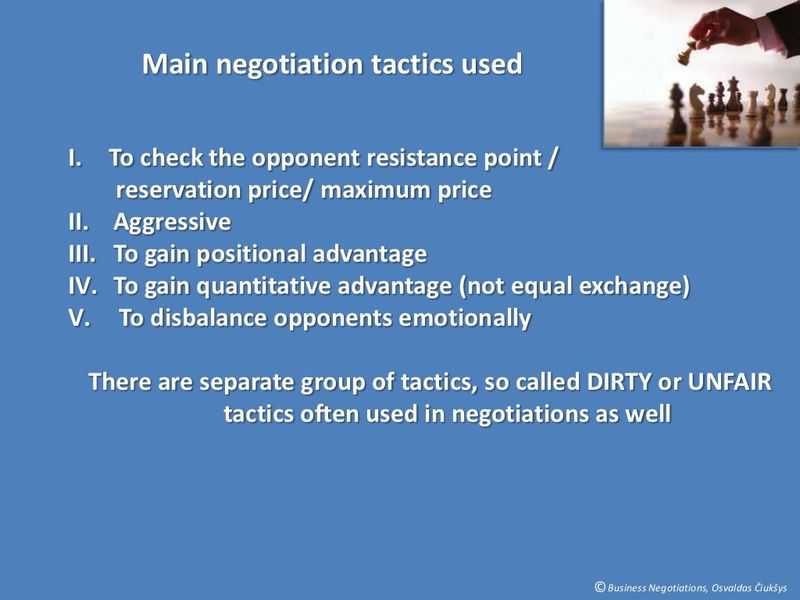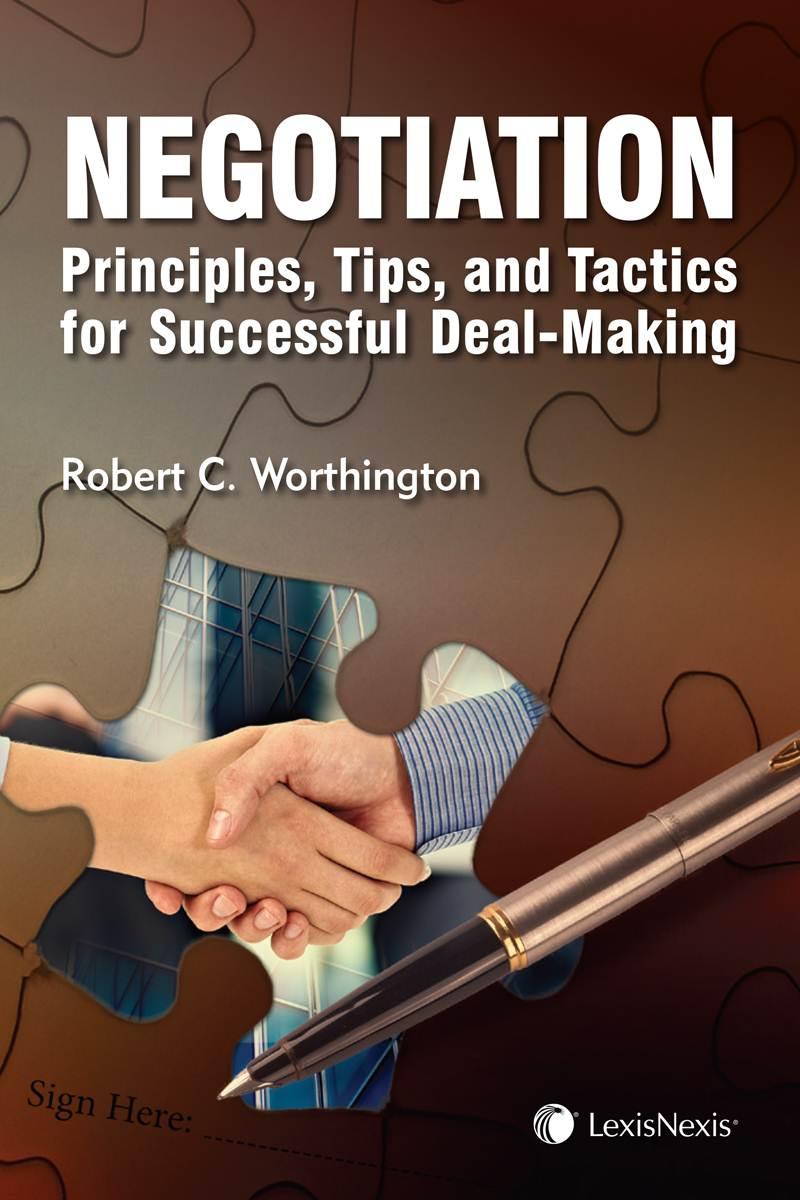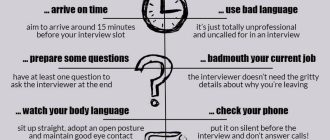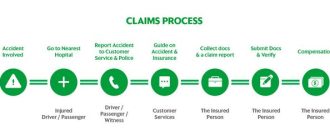
Negotiation Tactics: How to Effectively Negotiate with Insurance Adjusters.
When it comes to dealing with insurance claims, negotiating with insurance adjusters plays a crucial role in getting the compensation you deserve. Insurance adjusters are professionals who are trained to minimize payouts and protect the interests of the insurance company. Therefore, it is important to be equipped with effective negotiation tactics to ensure a fair settlement.
One of the key tactics to remember is to always be prepared. This means gathering all the necessary documentation, such as medical records, repair estimates, and any other evidence that supports your claim. By having a strong case and being able to back up your demands with evidence, you will be more likely to negotiate from a position of strength.
Another important tactic is to remain calm and composed during negotiations. Insurance adjusters are experienced in dealing with difficult situations, and they may try to use aggressive tactics or put pressure on you to accept a lower settlement. By staying focused and maintaining a professional demeanor, you can level the playing field and ensure that your voice is heard.
Furthermore, it is crucial to understand your rights and the terms of your insurance policy. This knowledge will give you leverage during negotiations and allow you to hold the insurance adjuster accountable. By quoting specific policy provisions or legal requirements, you can strengthen your argument and increase the chances of a favorable outcome.
In conclusion, negotiating with insurance adjusters requires effective tactics to ensure a fair settlement. By being prepared, remaining calm, and knowing your rights, you can navigate the negotiation process with confidence and increase the likelihood of a successful outcome.
Understanding the Role of Insurance Adjusters
When it comes to negotiation tactics, it’s important to understand the role of insurance adjusters. Insurance adjusters play a crucial role in the negotiation process between individuals and insurance companies. They represent the insurance company and are responsible for evaluating claims and determining the amount of compensation that should be provided.
Insurance adjusters are trained professionals who have extensive knowledge of insurance policies and the claims process. They are often tasked with investigating the details of a claim, which may include conducting interviews, gathering evidence, and assessing the damage or injuries involved. Based on their findings, adjusters will make a determination about the validity and extent of a claim.
During the negotiation process, insurance adjusters act as the main point of contact between the insured individual and the insurance company. They will use various negotiation tactics to try to settle the claim for the lowest possible amount. These tactics may include offering a low initial settlement offer, emphasizing any policy exclusions or limitations, or questioning the validity of the claim.
It’s important for individuals to be prepared when negotiating with insurance adjusters. This includes gathering evidence, such as photographs or witness statements, to support their claim. It’s also important to have a thorough understanding of their insurance policy, including any coverage limits or exclusions that may apply.
During negotiations, individuals should remain calm and professional, while also conveying the importance of their claim and the impact it has had on their life. It can be helpful to have a clear understanding of the value of the claim and to present this information to the adjuster in a clear and organized manner.
- Prepare by gathering evidence
- Understand your insurance policy
- Remain calm and professional
- Present the value of your claim clearly
By understanding the role of insurance adjusters and having a strategic approach to negotiation, individuals can increase their chances of reaching a fair and favorable settlement with their insurance company.
Researching and Documenting Your Claim
When it comes to negotiating with insurance adjusters effectively, one of the most important tactics is to thoroughly research and document your claim. This step is crucial in order to present a strong case and ensure that you receive fair compensation for your losses.
Here are some key steps to take when researching and documenting your claim:
1. Gather all relevant information:
Begin by collecting all the necessary information related to your claim, such as policy details, the incident report, photos, and any relevant medical records. This will provide a solid foundation for your negotiation and help you back up your demands.
2. Review your insurance policy:
Take the time to carefully review your insurance policy to understand the coverage you have and the terms and conditions that apply. By knowing your policy inside-out, you can effectively advocate for your rights and ensure that the adjuster does not take advantage of any loopholes.
3. Evaluate your losses:
Make a detailed list of all the damages and losses you have suffered. This can include property damage, medical bills, lost wages, or any other expenses incurred as a result of the incident. Having a comprehensive understanding of your losses will help you make a stronger case during negotiation.
4. Gather supporting evidence:
Collect any evidence that supports your claim, such as witness statements, repair estimates, or expert opinions. This evidence can be vital in proving your case and countering any arguments made by the insurance adjuster.
5. Keep a record of all communication:
Throughout the negotiation process, it is important to keep a record of all communication with the insurance adjuster. This includes emails, phone calls, and any other correspondence. This documentation will help you keep track of the progress of your claim and serve as evidence in case of any disputes.
By researching and documenting your claim thoroughly, you will be in a strong position to negotiate effectively with insurance adjusters. This will help ensure that you receive fair compensation for your losses and successfully resolve your claim.
Gathering Evidence to Support Your Claim
When negotiating with insurance adjusters, it is important to have strong evidence to support your claim. This evidence can help you effectively negotiate for the compensation you deserve. Here are some tips for gathering evidence:
1. Document the incident: Take detailed notes and photographs of the accident scene, damage, injuries, and any other relevant information. This documentation can provide visual evidence that supports your claim.
2. Secure witness statements: If there were witnesses to the incident, gather their contact information and ask them to provide a statement detailing what they saw. Witness statements can provide additional credibility to your claim.
3. Obtain police reports: If law enforcement was called to the scene, request a copy of the police report. This report can contain official documentation of the incident and may provide valuable information to support your claim.
4. Gather medical records: If you sustained injuries, gather all relevant medical records, including doctor’s notes, test results, and invoices. These records can demonstrate the extent of your injuries and the associated medical expenses.
5. Keep a record of expenses: Keep a detailed record of all expenses related to the incident, such as medical bills, repair costs, rental car expenses, and lost wages. These records can help establish the financial impact of the incident on your life.
6. Consult experts: In some cases, it may be helpful to consult experts, such as accident reconstruction specialists or medical professionals, to provide their expert opinion on the incident. Their expertise can strengthen your claim and provide additional evidence.
By gathering strong evidence to support your claim, you can effectively negotiate with insurance adjusters and increase your chances of receiving fair compensation for your losses.
Preparing a Strong Opening Statement
When it comes to negotiating with insurance adjusters, having a strong opening statement can set the tone for the entire negotiation process. By utilizing effective tactics and strategies, you can increase your chances of reaching a favorable outcome.
The first step in preparing a strong opening statement is to thoroughly understand the details of your insurance policy and your specific claim. This will enable you to confidently communicate your position and the reasons why you believe you are entitled to a fair settlement.
Next, it’s important to gather any relevant evidence to support your claim. This can include photos, videos, witness statements, and any other documentation that strengthens your case. Presenting this evidence in a clear and organized manner will help you to make a more persuasive argument.
In your opening statement, it is crucial to clearly articulate your objectives and desired outcome. This will provide the insurance adjuster with a clear understanding of what you are seeking and why. Being prepared with specific figures and a well-reasoned justification for your demands can strengthen your position and contribute to a more productive negotiation.
Another important aspect of a strong opening statement is to anticipate potential counterarguments or objections from the insurance adjuster. By addressing these issues in your statement, you can demonstrate that you have considered all angles and are prepared to counter any pushback. This shows the insurance adjuster that you are well-informed, confident, and willing to assert your rights.
Finally, it is essential to maintain professionalism and respect throughout the negotiation process. Although it can be tempting to use adversarial tactics, maintaining a calm and composed demeanor will help to build rapport and increase the likelihood of a favorable outcome. Taking the time to listen actively to the insurance adjuster’s perspective and concerns can also help you to find common ground and reach a mutually beneficial agreement.
| Thoroughly understand your insurance policy and claim details | Confidently communicate your position |
| Gather relevant evidence to support your claim | Make a more persuasive argument |
| Clearly articulate your objectives and desired outcome | Provide a clear understanding of your goals |
| Anticipate potential counterarguments or objections | Show that you are well-prepared and informed |
| Maintain professionalism and respect | Increase the likelihood of a favorable outcome |
By following these guidelines and preparing a strong opening statement, you can enter into negotiations with insurance adjusters with confidence and increase your chances of achieving a fair settlement.
Presenting Your Case Clearly and Concisely
When negotiating with insurance adjusters, it is crucial to present your case in a clear and concise manner. Effective communication can help you achieve a favorable outcome in the negotiation process. Here are some tactics to help you present your case effectively:
1. Be prepared: Before entering into negotiations, gather all relevant documents and information related to your claim. This may include medical records, photos of damages, witness statements, and any other supporting evidence. Being prepared will allow you to present your case confidently.
2. Stick to the facts: When presenting your case, focus on the facts and avoid emotional language. Clearly state the details of the incident, including dates, locations, and parties involved. This will help the insurance adjuster understand the situation objectively.
3. Use strong and concise language: Choose your words carefully and use strong, persuasive language to make a point. Be concise and avoid unnecessary details that may distract from your main argument. Keep your presentation straightforward and easy to understand.
4. Highlight key points: Emphasize the key points of your case to ensure they are clear and well-understood. Use bullet points or numbered lists to organize your arguments effectively. This will help the insurance adjuster focus on the important aspects of your claim.
5. Provide supporting evidence: Whenever possible, provide supporting evidence to back up your claims. This may include medical reports, repair estimates, or witness statements. Clear and credible evidence can strengthen your case and make it more difficult for the insurance adjuster to dispute your claim.
6. Ask for clarification: If the insurance adjuster raises any doubts or questions about your case, ask for clarification. This shows that you are engaged in the negotiation process and willing to address any concerns. Clearing up any misunderstandings can help move the negotiation forward.
7. Maintain a professional demeanor: Throughout the negotiation process, maintain a professional demeanor. Stay calm, polite, and confident. Avoid getting defensive or aggressive, as this can hinder the progress of the negotiation. By presenting yourself professionally, you will be perceived as more credible and trustworthy.
By following these tactics, you can ensure that you effectively present your case to insurance adjusters during negotiations. Clear and concise communication will help you convey your arguments and increase your chances of achieving a favorable settlement.
Anticipating and Addressing Counterarguments
When negotiating with insurance adjusters, it is important to anticipate and address potential counterarguments in order to effectively advocate for your position. By being proactive and prepared, you can increase your chances of reaching a favorable outcome. Here are some tactics to consider:
1. Research and understand the insurance policy: Before entering into negotiation, thoroughly review the insurance policy to identify any clauses or provisions that could potentially be used against your claim. By understanding the policy language, you can anticipate counterarguments related to coverage limitations or exclusions.
2. Gather evidence and documentation: To support your argument and rebut potential counterarguments, gather all relevant evidence and documentation. This could include medical records, photographs, witness statements, and any other documentation that supports your claim. Having this evidence readily available will strengthen your negotiating position.
3. Anticipate common counterarguments: Insurance adjusters often use a variety of common counterarguments to dispute or devalue claims. These may include arguments related to pre-existing conditions, comparative negligence, or the scope of damages. By anticipating these counterarguments, you can prepare strong responses to effectively refute them.
4. Build a strong case: In negotiation, it is crucial to build a strong case that supports your position. This may involve presenting clear and convincing evidence, expert opinions, and persuasive arguments. By demonstrating the strength of your case, you can effectively counter any arguments made by the insurance adjuster.
5. Stay calm and composed: Negotiations with insurance adjusters can be challenging and potentially adversarial. It is important to remain calm and composed throughout the process. By maintaining a professional demeanor, you can effectively address counterarguments without becoming defensive or emotional.
6. Consult with a professional: If you are encountering particularly difficult counterarguments or are unsure about how to respond, it may be beneficial to consult with a professional, such as an attorney or public adjuster. These professionals have experience dealing with insurance companies and can provide valuable guidance and support.
Overall, anticipating and addressing counterarguments is an essential component of effective negotiation with insurance adjusters. By thoroughly preparing, gathering evidence, and staying composed, you can effectively advocate for your position and increase your chances of reaching a favorable settlement.
Using Active Listening and Effective Communication
When dealing with insurance adjusters during a negotiation, it’s essential to utilize active listening and effective communication to effectively advocate for your position. By employing these tactics, you can better understand the adjuster’s perspective, build rapport, and ultimately achieve a favorable outcome.
Active listening involves fully engaging with the adjuster’s statements and demonstrating genuine interest in their point of view. This technique requires focusing on the adjuster’s words, observing their body language, and asking clarifying questions to ensure complete comprehension. By actively listening, you can identify areas of common ground and potential compromise, leading to a mutually satisfactory resolution.
Effective communication is another crucial element in insurance negotiation. Clearly articulating your position, needs, and concerns is essential to convey your message accurately. Use concise and assertive language to express yourself confidently, avoiding any ambiguity or confusion. Additionally, when engaging in discussions with the adjuster, remain calm and composed to enhance your credibility and professionalism.
During the negotiation process, it’s important to remain open-minded and flexible while advocating for your interests. By actively listening and employing effective communication techniques, you can establish a productive dialogue with the insurance adjuster and increase the likelihood of reaching a mutually beneficial agreement.
Building Rapport and Establishing Trust
When negotiating with insurance adjusters, it is essential to build rapport and establish trust. Effectively building a positive relationship with the adjuster can greatly increase your chances of reaching a favorable outcome. Here are some tactics to help you establish rapport and gain the trust of the insurance adjuster:
 1. Act professionally: Present yourself in a professional manner when communicating with the adjuster. Be courteous, respectful, and maintain a calm and composed demeanor. This will demonstrate that you are serious and can be trusted to handle the negotiation process responsibly. |
|
2. Be prepared: Before engaging in negotiations, gather all relevant information and documents related to your insurance claim. This includes policy details, evidence of damages, medical records, and any other relevant information. Being well-prepared will show the adjuster that you are knowledgeable and serious about your claim. |
|
3. Listen actively: When the adjuster is speaking, make sure to actively listen to what they are saying. Show interest and ask clarifying questions to demonstrate your understanding. This will not only help you better understand the adjuster’s perspective, but also show that you value their input. |
|
4. Find common ground: Look for areas of agreement or shared interests with the adjuster. This can help establish a sense of rapport and build trust. You can discuss common experiences, such as similar work backgrounds or personal interests. Finding common ground can humanize the negotiation process and create a more collaborative atmosphere. |
|
5. Be honest and transparent: Honesty is crucial when negotiating with insurance adjusters. Provide accurate and truthful information, and avoid exaggerating or omitting important details. Being honest and transparent will help establish trust and credibility, increasing the likelihood of a successful negotiation. |
|
6. Show empathy: Demonstrating empathy towards the adjuster can go a long way in building rapport. Acknowledge their role and challenges in handling insurance claims, and express understanding of their perspective. This can help create a more collaborative and cooperative negotiation environment. |
Remember, building rapport and establishing trust with insurance adjusters is key to negotiating effectively. By following these tactics, you can increase the likelihood of a positive outcome in your negotiations.
Identifying and Leveraging Negotiation Leverage
When it comes to negotiating with insurance adjusters, understanding and utilizing negotiation leverage is crucial. Negotiation leverage refers to any advantage or strength that can be utilized during the negotiation process to achieve favorable outcomes. Here are some tactics to effectively identify and leverage negotiation leverage:
| 1. Knowledge and Preparation | Being well-informed about your rights, insurance policies, and relevant laws can provide you with a significant advantage. Gather all necessary documentation, understand your coverage, and research similar cases to determine how they were resolved. |
| 2. Claim Assessment | Evaluate the extent of your claim and determine its value. Take into account medical expenses, property damage, lost wages, and any other relevant costs. Having a clear understanding of your claim’s value can help you assert your position during negotiations. |
| 3. Document Everything | Keep detailed records of all interactions, conversations, and agreements with insurance adjusters. This documentation can serve as evidence and protect your interests in case disputes arise later on. |
| 4. Emphasize Strengths | During negotiations, focus on highlighting the strengths of your claim. This could include strong evidence, credible witnesses, expert opinions, or a solid legal basis. Emphasizing these strengths can help sway the adjuster in your favor. |
| 5. Establish Alternatives | If the adjuster is unwilling to provide a fair settlement, be prepared to establish alternatives. This could involve hiring a lawyer, filing a complaint, or pursuing legal action. Showing the adjuster that you are ready to take further steps can incentivize them to offer a more favorable resolution. |
| 6. Maintain Professionalism | Always approach negotiations with professionalism and respect. Being polite and assertive can help maintain a positive relationship with the adjuster and increase the likelihood of reaching a mutually beneficial agreement. |
By identifying and leveraging negotiation leverage effectively, you can increase your chances of achieving a favorable outcome in negotiations with insurance adjusters. Remember to stay informed, document everything, and assertively present your case to maximize your negotiation position.
Using Objective Criteria to Support Your Position
When negotiating with insurance adjusters, it is crucial to have objective criteria to support your position. This means relying on facts, evidence, and industry standards instead of personal opinions or subjective measures. By using objective criteria, you can effectively make your case and increase your chances of reaching a favorable outcome.
One tactic to employ is presenting data and statistics that clearly demonstrate the validity of your claim. This could include medical records, police reports, or expert opinions. By providing concrete evidence, you can show the insurance adjuster that your position is based on objective facts, not just personal belief.
In addition to evidence, it is also helpful to reference industry standards and guidelines. Many insurance policies and agreements have specific provisions and protocols that outline how claims should be evaluated and settled. By familiarizing yourself with these standards, you can effectively negotiate with the insurance adjuster and advocate for a fair resolution.
Another effective tactic is using comparative examples. This involves referencing similar cases or situations where settlements or judgments have been made in favor of the insured party. By highlighting these precedents, you can demonstrate that your position is not an outlier but rather in line with past outcomes.
| Presenting data and statistics |
| Referencing industry standards |
| Using comparative examples |
In conclusion, using objective criteria is a crucial tactic when negotiating with insurance adjusters. By relying on facts, evidence, and industry standards, you can effectively support your position and increase your chances of reaching a favorable resolution.
Exploring Alternative Solutions and Compromises
During a negotiation with insurance adjusters, it is important to be open to exploring alternative solutions and compromises. This flexibility can lead to finding mutually beneficial outcomes that satisfy both parties involved.
When faced with a difficult situation or a disagreement, it can be helpful to brainstorm alternative solutions. This involves thinking outside the box and considering different options that may not have been initially apparent. By coming up with alternative solutions, you can present them to the insurance adjusters and demonstrate your willingness to work towards a resolution.
Remember to remain focused on the underlying interests and needs of both parties. Identify common ground and areas where compromise can be made. This involves active listening and seeking to understand the adjuster’s perspective. By acknowledging their concerns and finding ways to address them, you can build rapport and increase the chances of reaching an agreement.
Compromise plays a crucial role in negotiations. It requires give-and-take from both parties involved. It may involve making concessions or accepting less than your ideal outcome. However, in negotiations, the goal is to reach a mutually beneficial agreement, rather than “winning” at the expense of the other party.
When exploring alternative solutions and compromises, it is important to communicate effectively. Clearly articulate your points and rationale behind your proposals. Use strong and persuasive arguments to support your position. Keep in mind that negotiation is a process, and finding common ground may require multiple rounds of discussions.
In conclusion, exploring alternative solutions and being open to compromises are essential skills in negotiating with insurance adjusters. By demonstrating flexibility, actively listening, and seeking mutually beneficial solutions, you can increase the likelihood of reaching a satisfactory agreement.
Question-answer:
What are some effective negotiation tactics to use when dealing with insurance adjusters?
Some effective negotiation tactics to use when dealing with insurance adjusters include doing your research, knowing your rights and coverage, documenting all damages and losses, staying calm and composed, and seeking professional advice if needed.
How important is it to do your research before negotiating with an insurance adjuster?
Doing your research before negotiating with an insurance adjuster is crucial. It helps you gather information about your policy, understand your rights, determine the value of your claim, and negotiate from an informed position.
What should I do if I feel like the insurance adjuster is offering me a settlement that is too low?
If you feel like the insurance adjuster is offering you a settlement that is too low, you can politely decline and provide evidence or documentation to support your claim for a higher settlement. If needed, you can also consider hiring a public adjuster or consulting with an attorney to help you negotiate for a fair settlement.
Is it important to stay calm and composed during negotiations with insurance adjusters?
Yes, it is important to stay calm and composed during negotiations with insurance adjusters. Getting angry or emotional can hinder the negotiation process and may lead to an unfavorable outcome. Staying calm allows you to think clearly, present your case effectively, and increase your chances of reaching a fair settlement.
When should I seek professional advice when negotiating with insurance adjusters?
You should seek professional advice when negotiating with insurance adjusters if you feel overwhelmed or if the negotiation process is not going as expected. A public adjuster or an attorney specializing in insurance claims can provide guidance, advocate for your rights, and help you navigate the complexities of the negotiation process.
What are negotiation tactics?
Negotiation tactics are specific techniques or strategies used to reach a favorable agreement in a negotiation process.






